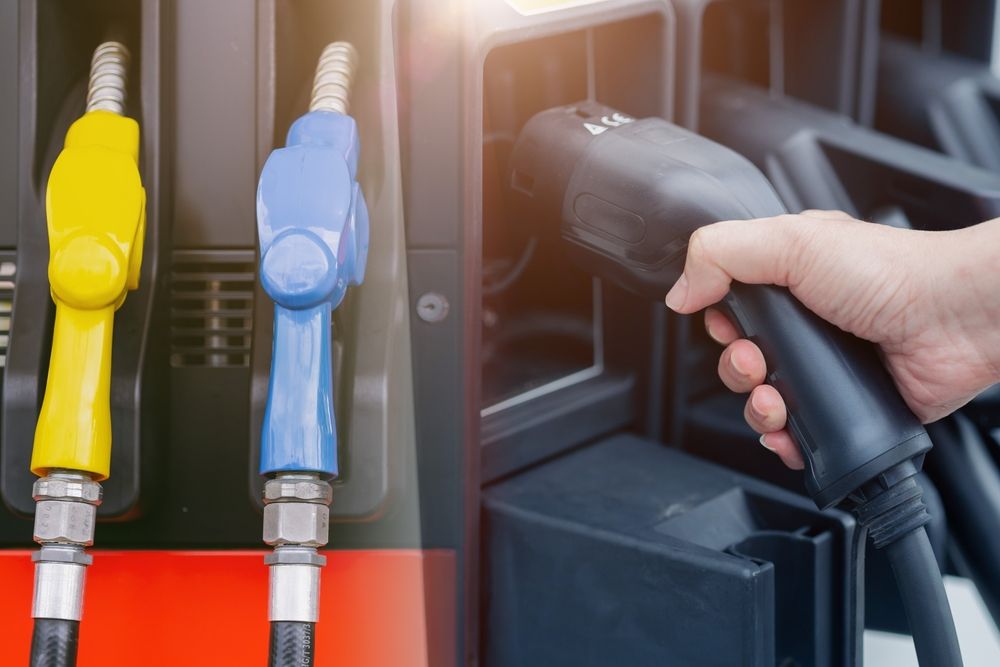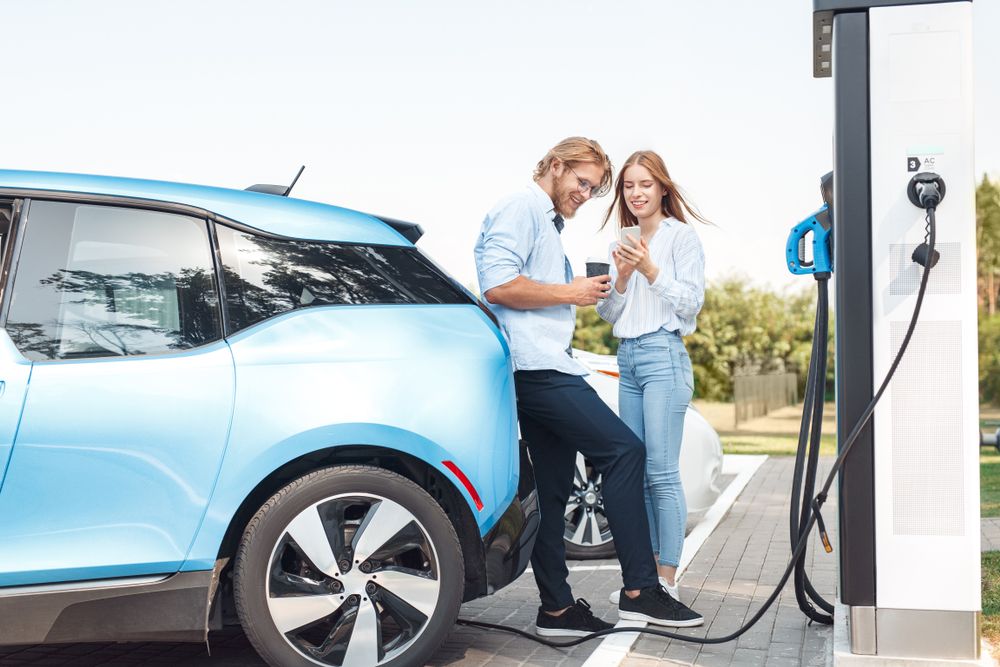As the auto industry shifts toward electrification, many drivers are now faced with a major decision: should your next car be gas-powered or electric? While both options can serve your daily driving needs, they differ significantly in terms of performance, maintenance, fuel costs, and environmental impact.
Choosing the right type of vehicle depends on how you drive, where you live, and what you prioritize in a car. Here's a practical breakdown to help you decide whether a gas or electric vehicle (EV) fits your lifestyle better.
Driving Habits and Daily Commute
One of the most important factors to consider is how far and how often you drive.
Choose Electric If:
-
Your daily commute is under 150 miles.
-
You mostly drive around town or in urban areas.
-
You have access to home charging or reliable public stations.
EVs are particularly well-suited for short to medium commutes and stop-and-go traffic, where regenerative braking helps maximize efficiency.
Choose Gas If:
-
You frequently take long road trips.
-
You often drive in rural or remote areas with limited charging infrastructure.
-
You don’t have access to home charging.
Gas-powered vehicles still offer the convenience of quick refueling and a more widespread support network.
Upfront Cost vs Long-Term Savings
EVs tend to have a higher upfront price, especially for newer models with longer range. However, the long-term savings from fuel and maintenance can make up for the initial cost difference.
Electric Cars:
-
May qualify for federal or state incentives, rebates, or tax credits.
-
Cost less per mile to “fuel” compared to gas.
-
Require less maintenance over time (no oil changes, fewer moving parts).
Gas Cars:
-
Typically cheaper to buy up front.
-
Resale value is more predictable due to mature market.
-
May cost more in fuel and repairs over the long term.
When evaluating cost, consider not just the sticker price, but fuel costs, maintenance, insurance, and incentives.
Maintenance and Repairs
Electric cars are generally easier and cheaper to maintain than gas-powered cars. They have fewer moving parts, no oil, no timing belts, and less wear on brakes thanks to regenerative braking.
EV Maintenance Advantages:
-
Fewer scheduled services.
-
No engine-related issues.
-
Less brake pad replacement.
Gas Car Maintenance Needs:
-
Regular oil changes and fluid checks.
-
More complex engine systems with higher wear.
-
Emission-related repairs over time.
However, EVs may require costly battery replacements after 8–10 years, depending on the model and usage.
Charging vs Fueling Convenience
The time it takes to recharge an EV compared to filling a gas tank is often a deciding factor.
Electric Vehicles:
-
Can be charged overnight at home.
-
Public charging may take 30 minutes to several hours.
-
Requires planning on long trips.
Gas Vehicles:
-
Fill-ups take less than 5 minutes.
-
Gas stations are available almost everywhere.
-
No special equipment needed at home.
For people who live in apartments or areas without charging stations, a gas car might be more convenient — unless you have access to a fast-growing charging network.
Environmental Impact
One of the biggest advantages of electric vehicles is their environmental benefit. EVs produce no tailpipe emissions, helping reduce air pollution and carbon footprint.
Electric:
-
Zero emissions while driving.
-
Lower overall environmental impact, especially when charged with renewable energy.
-
Battery production does have environmental cost, but it's offset over the vehicle's life.
Gas:
-
Emits CO2 and other pollutants.
-
Greater overall carbon footprint.
-
Refining and transporting gasoline adds to environmental impact.
If sustainability is important to you, an electric vehicle clearly comes out ahead.
Driving Experience and Performance
Electric vehicles offer a surprisingly powerful and quiet driving experience. They deliver instant torque, smooth acceleration, and fewer vibrations.
EVs Offer:
-
Fast acceleration from a complete stop.
ADVERTISEMENT -
Quiet, smooth ride with less engine noise.
-
Regenerative braking adds a unique driving feel.
Gas Cars Offer:
-
Familiar performance, especially for driving enthusiasts.
-
Wide range of engines and transmission options.
-
More feedback and sound, which some drivers prefer.
If you're looking for performance, many EVs now rival or outperform gas-powered sports cars in acceleration — but if you enjoy the classic feel of shifting gears, a gas car may still appeal more.
Infrastructure and Accessibility
The EV landscape is rapidly improving, but gas stations are still more widely available.
Electric Cars:
-
Charging infrastructure is expanding, but may be limited in rural areas.
-
Apps help locate and monitor charging stations.
-
Not all fast chargers are compatible with all EV models.
Gas Cars:
-
Refueling is quick and universally accessible.
-
Better suited for spontaneous or long-distance travel.
-
No learning curve for new users.
For now, EVs are ideal for drivers in metro areas or those willing to plan charging stops in advance.
Resale Value and Market Trends
The used EV market is still developing, with resale values fluctuating based on battery condition and tech relevance. Gas vehicles have a more established resale pattern.
EV Considerations:
-
Older models may lose value quickly as battery tech improves.
-
Newer models with long range and updated features retain value better.
-
Market demand is rising as adoption grows.
Gas Vehicle Considerations:
-
Predictable depreciation curves.
-
More buyers in the secondhand market.
-
May lose appeal as EV incentives and bans on combustion engines increase.
Think about where the market is heading — EVs may gain more value in the long run.
Insurance Costs
Insurance premiums can vary between gas and electric vehicles, depending on the brand and replacement cost.
-
EVs may have higher premiums due to expensive components and repair complexity.
-
Some insurance companies offer discounts for green or low-emission vehicles.
-
Gas cars may be cheaper to insure but could carry higher long-term liability costs.
Get quotes for both types before deciding.
Future Legislation and Incentives
Many cities and countries are preparing to phase out gas-powered cars in the next 10–20 years. EV incentives are currently generous, but may change with policy shifts.
-
Some countries are offering tax breaks, rebates, and free charging to encourage EV adoption.
-
Urban areas may restrict gas cars from city centers in the near future.
-
Government support varies by location — check your local programs.
If you want a future-proof vehicle, EVs are where the world is heading.
Choosing between a gas and electric vehicle isn’t a one-size-fits-all decision. It depends on your driving habits, location, access to charging, budget, and environmental priorities.
Pick an EV if:
-
You drive under 150 miles a day.
-
You want lower maintenance and fuel costs.
-
You have access to reliable charging.
-
Environmental impact matters to you.
Stick with gas if:
-
You take long road trips often.
-
Charging infrastructure is limited near you.
-
You prefer traditional driving dynamics.
-
You're looking for a lower initial purchase price.
The best choice is the one that fits your current lifestyle — and helps you stay ready for the future of driving.





